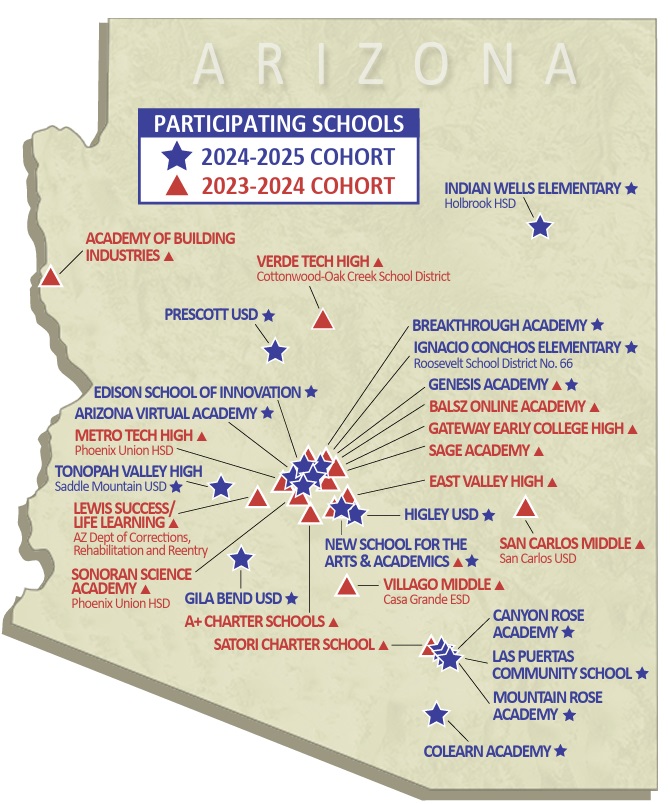College & Career Competencies Project
The College and Career Competency Framework supports educators in systematically embedding intrapersonal and interpersonal competencies into course content to help students become career-equipped, life-long learners.
Educators have seen the following impacts from competency instruction:
- Higher rates of school attendance
- Active engagement in the classroom (i.e., paying attention, understanding and retaining subject matter, etc.)
- Better grades and achievement scores
- Fewer office referrals
- Increased likelihood of pursuing postsecondary education
- Increased likelihood of post-school success (i.e., promotions, raises, etc.)
Do your students have difficulty turning in homework, getting to school on time, focusing on academics during class, studying for tests, completing all aspects of projects, or managing their emotions? Self-Regulation instruction can help.
Do your students lack confidence in their abilities, think that they will always do as well or as poorly as they have done in the past, give up easily when they encounter obstacles, or simply feel that they cannot learn the course content or succeed in school, sports, or arts? Self-Efficacy instruction can help.
Do your students have difficulty expressing themselves or asking for help when they don't understand, sharing opinions during group work, or standing up to their peers? Or do they react aggressively in certain situations; responding in demanding or hostile ways instead of expressing their thoughts or needs respectfully? Assertiveness instruction can help. To learn more about securing a spot for your school, complete the interest form to schedule a 30-minute conference call.
College & Career Competencies Project Cohorts
| 2022-2023 | 2023-2024 | 2024-2025 |
|---|---|---|
| Carl Hayden Community High School | A+ Charter Schools | Indian Wells Elementary |
| Navajo County Instruction for Success High School (NCIS) | Academy of Building Industries | Prescott USD |
| Tucson Success/Life Learning | Balsz Online Academy | Edison School of Innovation |
| San Luis High School | East Valley High School | Arizona Virtual Academy |
| Girls Leadership Academy of Arizona | Gateway Early College High School | Tonopah Valley High |
| AmeriSchools Academy (Yuma Campuses) | Genesis City | Gila Bend USD |
| Franklin Phonetic Primary School | Lewis Success/Life Learning | New School for the Arts & Academics |
| Center for Academic Success (Douglas Campus) | New School for the Arts & Academics | Higley USD |
| Camelback Academy | Metro Tech High School | Genesis Academy |
| Ganado Middle School | Sonoran Science Academy Phoenix K-12 | Ignacio Conchos Elementary |
| Ganado High School | Sage Academy | Breakthrough Academy |
| Desert Heights Preparatory Academy | Satori Charter School | Canyon Rose Academy |
| San Carlos Middle School | San Carlos Middle School | Las Puertas Community Schools |
| Riverview High School | Verde Tech High School | Mountain Rose Academy |
| Winslow Success/Life Learning | Colearn Academy | |
| Cibola High School | ||
| Fort Mohave Elementary | ||
| Camp Mohave Elementary |
These resources offer more information on College and Carrer Competencies Project:
Learn more about the College & Career Competencies Project by watching these videos
Contact Us
For general questions or more information, please email Lauren Friend.
Page revised 5/14/24








